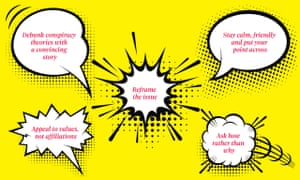Yuval Noah Hariri in The Economist
Fears of artificial intelligence (ai) have haunted humanity since the very beginning of the computer age. Hitherto these fears focused on machines using physical means to kill, enslave or replace people. But over the past couple of years new ai tools have emerged that threaten the survival of human civilisation from an unexpected direction. ai has gained some remarkable abilities to manipulate and generate language, whether with words, sounds or images. ai has thereby hacked the operating system of our civilisation.
Language is the stuff almost all human culture is made of. Human rights, for example, aren’t inscribed in our dna. Rather, they are cultural artefacts we created by telling stories and writing laws. Gods aren’t physical realities. Rather, they are cultural artefacts we created by inventing myths and writing scriptures.
Money, too, is a cultural artefact. Banknotes are just colourful pieces of paper, and at present more than 90% of money is not even banknotes—it is just digital information in computers. What gives money value is the stories that bankers, finance ministers and cryptocurrency gurus tell us about it. Sam Bankman-Fried, Elizabeth Holmes and Bernie Madoff were not particularly good at creating real value, but they were all extremely capable storytellers.
What would happen once a non-human intelligence becomes better than the average human at telling stories, composing melodies, drawing images, and writing laws and scriptures? When people think about Chatgpt and other new ai tools, they are often drawn to examples like school children using ai to write their essays. What will happen to the school system when kids do that? But this kind of question misses the big picture. Forget about school essays. Think of the next American presidential race in 2024, and try to imagine the impact of ai tools that can be made to mass-produce political content, fake-news stories and scriptures for new cults.
In recent years the qAnon cult has coalesced around anonymous online messages, known as “q drops”. Followers collected, revered and interpreted these q drops as a sacred text. While to the best of our knowledge all previous q drops were composed by humans, and bots merely helped disseminate them, in future we might see the first cults in history whose revered texts were written by a non-human intelligence. Religions throughout history have claimed a non-human source for their holy books. Soon that might be a reality.
On a more prosaic level, we might soon find ourselves conducting lengthy online discussions about abortion, climate change or the Russian invasion of Ukraine with entities that we think are humans—but are actually ai. The catch is that it is utterly pointless for us to spend time trying to change the declared opinions of an ai bot, while the ai could hone its messages so precisely that it stands a good chance of influencing us.
Through its mastery of language, ai could even form intimate relationships with people, and use the power of intimacy to change our opinions and worldviews. Although there is no indication that ai has any consciousness or feelings of its own, to foster fake intimacy with humans it is enough if the ai can make them feel emotionally attached to it. In June 2022 Blake Lemoine, a Google engineer, publicly claimed that the ai chatbot Lamda, on which he was working, had become sentient. The controversial claim cost him his job. The most interesting thing about this episode was not Mr Lemoine’s claim, which was probably false. Rather, it was his willingness to risk his lucrative job for the sake of the ai chatbot. If ai can influence people to risk their jobs for it, what else could it induce them to do?
In a political battle for minds and hearts, intimacy is the most efficient weapon, and ai has just gained the ability to mass-produce intimate relationships with millions of people. We all know that over the past decade social media has become a battleground for controlling human attention. With the new generation of ai, the battlefront is shifting from attention to intimacy. What will happen to human society and human psychology as ai fights ai in a battle to fake intimate relationships with us, which can then be used to convince us to vote for particular politicians or buy particular products?
Even without creating “fake intimacy”, the new ai tools would have an immense influence on our opinions and worldviews. People may come to use a single ai adviser as a one-stop, all-knowing oracle. No wonder Google is terrified. Why bother searching, when I can just ask the oracle? The news and advertising industries should also be terrified. Why read a newspaper when I can just ask the oracle to tell me the latest news? And what’s the purpose of advertisements, when I can just ask the oracle to tell me what to buy?
And even these scenarios don’t really capture the big picture. What we are talking about is potentially the end of human history. Not the end of history, just the end of its human-dominated part. History is the interaction between biology and culture; between our biological needs and desires for things like food and sex, and our cultural creations like religions and laws. History is the process through which laws and religions shape food and sex.
What will happen to the course of history when ai takes over culture, and begins producing stories, melodies, laws and religions? Previous tools like the printing press and radio helped spread the cultural ideas of humans, but they never created new cultural ideas of their own. ai is fundamentally different. ai can create completely new ideas, completely new culture.
At first, ai will probably imitate the human prototypes that it was trained on in its infancy. But with each passing year, ai culture will boldly go where no human has gone before. For millennia human beings have lived inside the dreams of other humans. In the coming decades we might find ourselves living inside the dreams of an alien intelligence.
Fear of ai has haunted humankind for only the past few decades. But for thousands of years humans have been haunted by a much deeper fear. We have always appreciated the power of stories and images to manipulate our minds and to create illusions. Consequently, since ancient times humans have feared being trapped in a world of illusions.
In the 17th century René Descartes feared that perhaps a malicious demon was trapping him inside a world of illusions, creating everything he saw and heard. In ancient Greece Plato told the famous Allegory of the Cave, in which a group of people are chained inside a cave all their lives, facing a blank wall. A screen. On that screen they see projected various shadows. The prisoners mistake the illusions they see there for reality.
In ancient India Buddhist and Hindu sages pointed out that all humans lived trapped inside Maya—the world of illusions. What we normally take to be reality is often just fictions in our own minds. People may wage entire wars, killing others and willing to be killed themselves, because of their belief in this or that illusion.
The AI revolution is bringing us face to face with Descartes’ demon, with Plato’s cave, with the Maya. If we are not careful, we might be trapped behind a curtain of illusions, which we could not tear away—or even realise is there.
Of course, the new power of ai could be used for good purposes as well. I won’t dwell on this, because the people who develop ai talk about it enough. The job of historians and philosophers like myself is to point out the dangers. But certainly, ai can help us in countless ways, from finding new cures for cancer to discovering solutions to the ecological crisis. The question we face is how to make sure the new ai tools are used for good rather than for ill. To do that, we first need to appreciate the true capabilities of these tools.
Since 1945 we have known that nuclear technology could generate cheap energy for the benefit of humans—but could also physically destroy human civilisation. We therefore reshaped the entire international order to protect humanity, and to make sure nuclear technology was used primarily for good. We now have to grapple with a new weapon of mass destruction that can annihilate our mental and social world.
We can still regulate the new ai tools, but we must act quickly. Whereas nukes cannot invent more powerful nukes, ai can make exponentially more powerful ai. The first crucial step is to demand rigorous safety checks before powerful ai tools are released into the public domain. Just as a pharmaceutical company cannot release new drugs before testing both their short-term and long-term side-effects, so tech companies shouldn’t release new ai tools before they are made safe. We need an equivalent of the Food and Drug Administration for new technology, and we need it yesterday.
Won’t slowing down public deployments of ai cause democracies to lag behind more ruthless authoritarian regimes? Just the opposite. Unregulated ai deployments would create social chaos, which would benefit autocrats and ruin democracies. Democracy is a conversation, and conversations rely on language. When ai hacks language, it could destroy our ability to have meaningful conversations, thereby destroying democracy.
We have just encountered an alien intelligence, here on Earth. We don’t know much about it, except that it might destroy our civilisation. We should put a halt to the irresponsible deployment of ai tools in the public sphere, and regulate ai before it regulates us. And the first regulation I would suggest is to make it mandatory for ai to disclose that it is an ai. If I am having a conversation with someone, and I cannot tell whether it is a human or an ai—that’s the end of democracy.
This text has been generated by a human.
Or has it?
By Tom Chivers in The Telegraph
'Time is an illusion. Lunchtime doubly so,” said Ford Prefect in Douglas Adams’s The Hitchhiker’s Guide to the Galaxy. For the past century, mainstream physics has agreed with him. To most of us, it seems obvious that the world is moving steadily forward through time, from a known past, through an active present, into a mysterious future. But, as Einstein said, “physicists believe the separation between past, present, and future is only an illusion, although a convincing one”.
“Mainstream physics basically eliminates time as a fundamental aspect of nature,” explains Prof Lee Smolin, a physicist at the Perimeter Institute for Theoretical Physics, in Ontario, Canada. “It does that in various ways, but the most common is the so-called 'block universe’ picture, which is derived from general relativity.”
Under this system, what is actually real is not our passage through time, but the whole of reality at once. “Imagine taking a movie of your life,” says Prof Smolin, “and laying out the frames on a table, and saying: that is your life. There is no now, there is no change.”
He thinks that it is high time – so to speak – this view was overturned. In his new book Time Reborn, he makes the case that time is a fundamental reality of the universe, and that without it, too many of the big questions of physics are left unanswerable.
The question of what time is, and whether it is real or illusory, is an ancient one. Even before Plato, Greek philosophers were debating whether, as Heraclitus said, you cannot step in the same river twice, that all is flux and change, or whether Parmenides was right and that change is an illusion, that the universe simply exists as an unchanging lump.
The first person to address the issue in depth, according to Dr Julian Barbour, author of The End of Time, was St Augustine. He was baffled by it, and said as much. “What then is time?” Augustine wrote. “If no one asks of me, I know; if I wish to explain to him who asks, I know not.” Still, he did make an attempt to explain it, coming to the surprisingly modern conclusion that there could not have been time before the world, because there would have been no change, and without change, time is meaningless.
Sir Isaac Newton, a thousand years later, disagreed. He held the common-sense view – instinctively shared by the rest of us – that time is absolute, marching on regardless of the doings of the stuff of the universe. It was Einstein who showed that it was no such thing. According to his theories of relativity, time and space are part of an interwoven fabric: the presence of matter changes both, stretching the fabric like a weight on a sheet.
His theories are counterintuitive – arguing that someone who is travelling ages slower than someone who is standing still, and that time goes faster the further we get from the surface of the Earth – but at least, in his universe, there is such a thing as time.
“Einstein, in a way, makes time something real – with the idea of space-time, he makes it as real as space,” says Dr Barbour. But there is a fundamental difference, which leads us to one of the great problems with our concept of time: “We get the impression that we are always moving through time, when we can perfectly happily sit still and have no impression that we are moving through space. That’s a very big mystery, because the laws of physics work exactly the same way whether you run them forwards or backwards.”
Clearly, that is not how we perceive the world. We see babies be born, grow old and die; water flowing downhill; and wood burning to ash. “If you drop an egg on the floor, it breaks, and there is no way you can put that egg back together again,” says Dr Barbour.
This is due to a property called entropy, or disorder. The second law of thermodynamics dictates that the universe will move from ordered, low-entropy states to disordered, high-entropy states: ice will melt and coffee will cool, until everything is the same temperature, and everything is mixed together in an undifferentiated mass. “According to the fundamental laws of physics as we know them, it shouldn’t make any difference which way you look at them. And yet it is clearly the case that entropy increases,” Dr Barbour says.
That leaves an awful lot of questions unanswered – which is where Prof Smolin’s ideas come in. “The second law dictates that any system in disequilibrium should come quickly to equilibrium,” he points out. “But our universe, even though it’s more than 13 billion years old, is very far from equilibrium.”
This is due to particular facts about the laws of physics – such as the strength of gravity, or the precise set of particles we observe – and the very specific way that the universe began. But Prof Smolin points out that we still do not know why those laws are as they are, or why the universe should have started in its particular way: “There seems to be no simple principle that picks out the standard model of particle physics from a vast number of equally likely possibilities.” Uncountable billions of other universes could have existed in which there would be no stars, no planets, and no us.
Prof Smolin’s point is that, for modern physics, in which time is treated as an illusion, this question is unanswerable. “The initial conditions and laws, in the block universe model, are just part of the universe. It would be like asking a computer to explain the program it’s running.” But if we treat the laws as things that could have been different had history gone differently, or that can change with time, “then time has to exist prior to those laws, and then it has to be real in a way that the block universe doesn’t allow”.
There is a risk with much of theoretical physics that it strays into a realm of philosophy, away from the science of experiment and reality. Prof Smolin insists that this is not the case: his idea of “real time” includes hypotheses that make testable predictions. One such experiment might be to use quantum computers, which, in theory, will be able to detect the evolution of physical laws. Dr Barbour (whose book tends to support the time-is-an-illusion school of thought), says that observations of astronomical phenomena called gamma-ray bursts might also show violations of Einstein’s laws at the universe’s smallest scale – although so far, he says, they have proved remarkably robust.
If Prof Smolin is right, he believes that it will have implications far beyond academic physics. “A lot of our thinking about many things, from the nature of being human to political and environmental problems, are poisoned by the belief that the future is already determined and that we can’t find truly novel solutions,” he says. “For example, in economics, the insistence that the laws are formalised in a timeless mathematical setting, like Newtonian physics, leads to some incorrect ideas, which helped contribute to the economic disaster of 2008.” A model of the world in which “the future is open, and the universe can discover novel structures, novel ideas, creates a very different idea of our possibilities” – and could lead to some very different thinking.
Whether he’s right or not, only time itself will tell. Certainly, physics has done away with the concept of time for so long that simply saying that it is real feels almost revolutionary.



